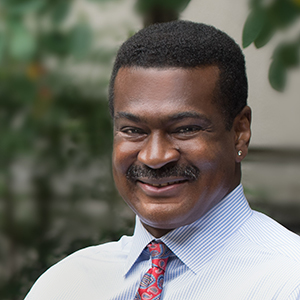
By NASW CEO
Angelo McClain, PhD, LICSW
Multifaceted connectedness—defined as the subjective experience of feeling close to, and a sense of belonging with, others—is one of six important focal points of NASW’s 2018-21 Strategic Plan.
The plan includes this concept because it elevates the association’s long-standing commitment to advance the profession by creating a greater sense of collective professional connectedness and community among social workers.
NASW’s pledge to pursue connectedness is carried out and realized simultaneously on multiple levels. The commitment is grounded in an understanding that feeling connected creates a greater sense of professional belonging for social workers and deepens their sense of professional meaning and purpose.
For social workers, connection is a significant and integral feature of our professional identity, profoundly influencing our professional behavior, adherence to the NASW Code of Ethics, and the way we perceive and react to the clients and communities we serve.
Through connectedness, social workers across the profession have a collective understanding that we all impact and influence each other and the growth of the profession. It enables us to build bridges of understanding and weave meaningful relationships that empower and enrich us all.
While each social worker is responsible for her or his own judgments and actions, those with strong connectedness believe we are part of something larger. This belief is sustaining in the face of inherent challenges within the professional terrain.
You may be asking, “How can I increase my connectedness?” NASW has tools and resources to help social workers build and nurture their sense of feeling connected. The association creates forums for interpersonal interactions and coming together to generate collective impact on a level that would never be achieved individually.
NASW understands that the fibers binding us grow stronger through relationships that can be relied on over long periods of time. For more than six decades, NASW has been a place where social workers have found encompassing emotional support, material aid, informational resources, career-advancement support, and leadership for the profession.
We have all benefitted from the work of NASW members and volunteer leaders who, through connectedness and association, contributed to the protection of social workers, the growth and development of the profession, and advocacy for social justice and social welfare.
Whether we fully appreciate it, our notions of professional self-definition and identity are heavily influenced by relationships. When our sense of connection is stronger, we have a greater sense of professional belonging and are better linked to the collective resources, perspectives and empowerment of the profession.
I encourage every social worker to join NASW, an organization that puts connectedness into practice.
Contact Angelo McClain at naswceo@socialworkers.org.